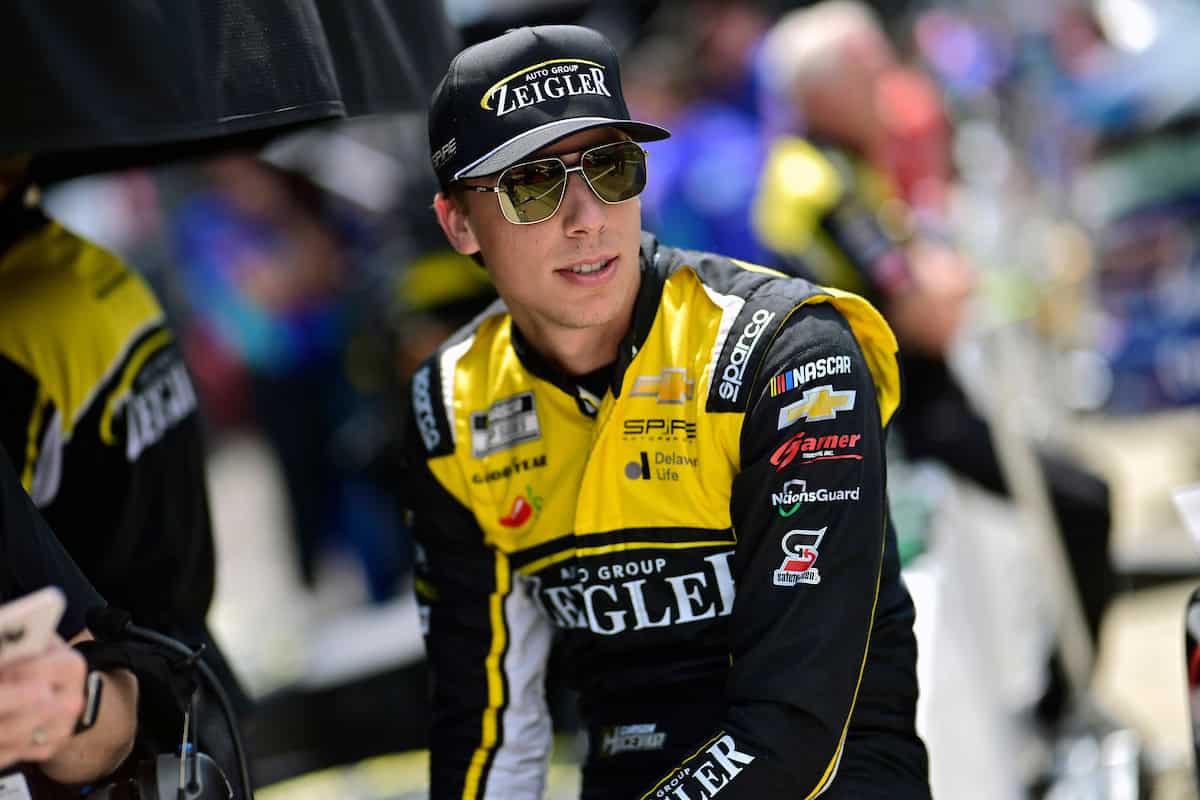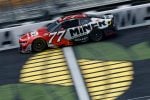1. Let Carson Hocevar Be Carson Hocevar
At this point, it’s not who was most recently upset with Carson Hocevar. It’s who hasn’t had an axe to grind with the driving style of the no-holds-barred driver.
For the record, the most recent driver to have an issue was Zane Smith, with things escalating to the point that his own crew chief Ryan Bergenty confronted Hocevar after Sunday’s (Aug. 3) NASCAR Cup Series race at Iowa Speedway.
Should Hocevar change his style of racing to gain friends? There’s a case to be made that it’s for the best long term. That case, however, is the wrong one.
To paraphrase the late, great Neil Bonnett, “we ain’t out there to make friends.”
Some drivers are cut out to be quiet, calculating and crafty drivers. Others are driven by being aggressive, no matter what happens in the process. Hocevar is absolutely in the latter of that. If Hocevar were to suddenly decide to start anew and start driving differently, you wouldn’t even recognize him. Not only that, but it’d take away part of what makes Hocevar a good fit over at Spire Motorsports, a team that, while not among the frontrunners, is eager to show that it can run among the best, and Hocevar’s driving style plays into that identity.
So, what should Hocevar change about his driving? Absolutely nothing.
2. Did the Haas Factory Team Serve an Advanced Playoff Notice?
Saturday’s NASCAR Xfinity Series win may not be the first triumph in the series when you think of Haas’ past, but it may very well be the most important for the present.
When Stewart-Haas Racing shut down, but its name continued with the advent of Haas Factory for 2025, there were likely some doubts questioning how well a mostly reset group would do.
Could it be competitive? Could this team win a race? Could both its drivers, Sheldon Creed and Sam Mayer, contend for the postseason? All of that was answered with Saturday’s win by Mayer. For a team in the place that Haas is right now, a win is huge. It shows that those at and away from the track are moving the needle in the right direction. It does not hurt that it means at least one driver will be in the Xfinity postseason, either.
And with Mayer’s win, the rest of the Xfinity Series is on notice for one simple reason. The opening round of the postseason includes the Charlotte Motor Speedway ROVAL. Four of Mayer’s Xfinity Series wins are on road courses, including two on the ROVAL.
That means confidence, and there are few things more dangerous to face in this postseason format than a confident driver.
3. Every Win Matters, Even on Fuel Mileage
Two races. Two winners by way of fuel mileage.
I’ve lost count of how many times the storyline develops: A driver appears not to have enough fuel to make it to the end, only to win and have enough for a burnout.
Is it a disconnect between broadcasts and a layer of fuel-track technology? Is it a game of cheese by crew chiefs to make everyone think they may run out of fuel?
Sure, there’s an argument that fuel-mileage wins don’t have the same degree of excitement as someone going wheel-to-wheel for a win over 10 laps. But any time someone wins on fuel mileage, gamesmanship or not, it should be celebrated.
Why? Because it’s one of the biggest elements of what makes racing great. The best car does not always win. NASCAR’s history is full of cars that were a cinch to win, only to have those chances foiled by a fluke part breaking or someone else having a pit or fuel strategy.
Fuel-mileage wins may not be trendy or glitzy, but they still deserve to the celebrated on a high level.
4. Do These Cars Have a Durability Problem?
Bubba Wallace should be commended for his drive at Iowa, showing that his Brickyard 400 win was no fluke, as he charged late to finish sixth after breaking a toe link early on at Iowa in a race where he was as low as 32nd on the leaderboard.
The bigger story, however, is that this car continues to be durable.
Perhaps too durable.
If a driver knows that they can bash a car around and still have a strong finish despite a degree of damage, is it any wonder that you see drivers with more boldness in terms of leaning their cars up against each other in traffic?
If you want cars slamming and banging into one another, that’s fine, but it’s not racing.
If these cars were not as durable, odds are good that drivers would be forced to not risk using up their equipment just to bumper tag somebody.
The current generation of racecar has produced not cars, but tanks. That’s good for demolition derbys, but not for NASCAR, and it should be added to a long list of needs for when the next generation of racecar is devised.
5. Could Racetracks Exist Without Racing?
Like any event, the weekend’s Speedway Classic at Bristol Motor Speedway had its ups and downs. Regardless of all of that, there is something that should not be forgotten.
That more and more, just because a racetrack exists does not mean that events beyond racing can and should happen there. Yes, racing has made places like Bristol famous, but the weekend also continued to show what these venues are becoming more of – event facilities.
When the Jacksonville Jaguars announced renovation plans for their stadium, Daytona International Speedway was mentioned as a possible temporary venue for games. Multiple tracks stage Monster Jam events, with EchoPark Speedway being among the places getting non-traditional race fans on site for things like concert festivals and even high school graduations. The location of Las Vegas Motor Speedway makes it a prime place for corporate track rental events.
As racetracks become more viable for non-racing events, therein lies the challenge – will they become more known for things besides racing? And if that happens, these places could exist without the reason for their existence – racing.
Brad joined Frontstretch.com in 2020 and contributes to the site's 5 Points To Ponder column and other roles as needed. A graduate of the University of Georgia's Henry W. Grady School of Journalism and Mass Communication, he has covered sports in some capacity for more than 20 years with coverage including local high school sports, college athletics and minor league hockey. Brad has received multiple awards for his work from the Georgia Press Association.






